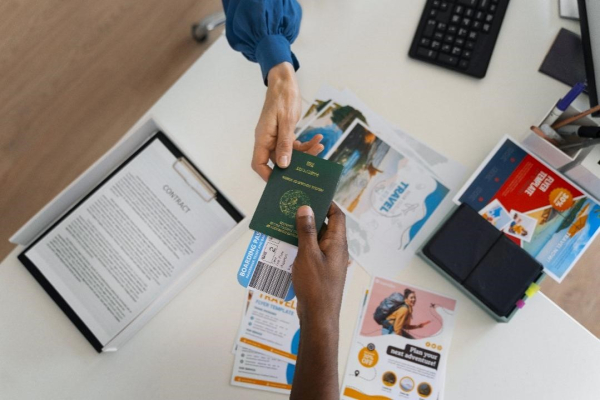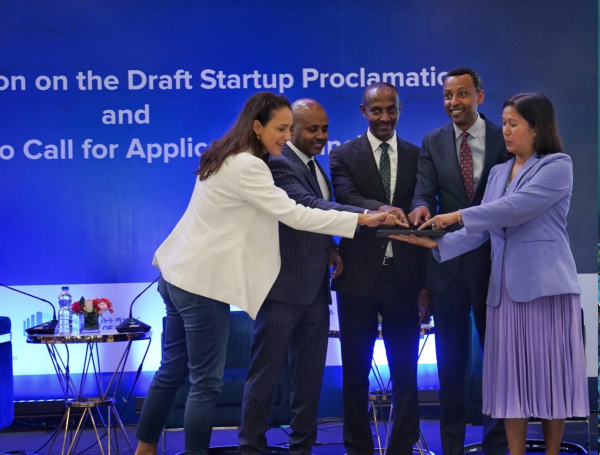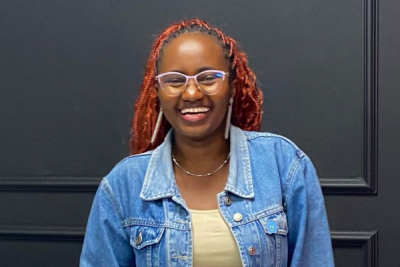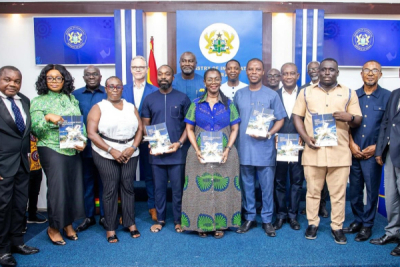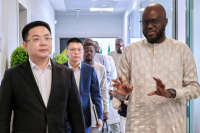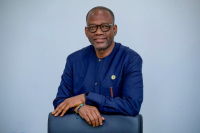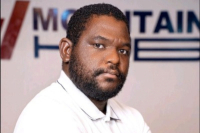Passport fraud remains a challenge globally, with fraudulent documents enabling illegal immigration, identity theft, and terrorism. Adopting Chip-embedded passports significantly improves security, making it difficult for criminals to forge or alter documents.
Ghana’s Ministry of Foreign Affairs and Regional Integration has announced the transition from biometric passports to advanced chip-embedded travel documents. This initiative, unveiled on December 2, reflects Ghana’s dedication to enhancing security, improving efficiency, and aligning with international standards for travel documentation.
Sector Minister Shirley Ayorkor Botchwey hailed the initiative as a significant milestone in Ghana’s digital transformation, emphasizing that the country, as the “gateway to Africa,” must lead in adopting advanced security technologies.
The new passports will feature embedded microprocessors to store biometric and photo data, enhancing security measures and preventing fraud. This upgrade aligns Ghana with International Civil Aviation Organization (ICAO) regulations and global standards for biometric identification.
The chip-embedded passports will include enhanced anti-fraud measures, such as latent and patent security indicators, and integrate an online system to streamline application and delivery processes. Infrastructure improvements will also be made at Passport Application Centres and Ghanaian Missions abroad to support the new system.
The project, initiated in 2016, is being executed through a Build, Operate, and Transfer (BOT) agreement with Biometric Travel Solutions Limited, a Ghanaian firm. This rollout aims to accelerate passport issuance and combat illegal activities like extortion by intermediaries, commonly known as “Goro boys.” Through these measures, Ghana seeks to modernize its travel documentation and ensure compliance with global best practices.
Ghana has shown steady progress in digital transformation, with a focus on integrating technology into public services. The new passports align with this strategy, complementing existing efforts to modernize government processes.
As of December 2024, the Ghanaian passport ranks 142nd globally on the VisaGuide Passport Index. It allows visa-free travel to 46 countries, requires an eVisa for 19, and mandates visas for 140 destinations.
Hikmatu Bilali
Manufacturing is critical to economic transformation in Africa. However, Africa’s share of global manufacturing output remains far below its potential. The ManuTech Hub aims to leverage startups to address challenges such as low productivity, limited technology adoption, and skills gaps that hinder industrial growth.
The United Nations Development Programme (UNDP) and Ethiopia’s Ministry of Industry have unveiled the Timbuktoo ManuTech Hub. The initiative, announced November 23 in a UNDP press release, is designed to support African startups with funding, mentorship, and advanced technical resources. Set to open in early 2025, the hub will be based in Addis Ababa and serve as a platform for innovation in the manufacturing sector through technology and strategic partnerships.
According to the release, “ManuTech aligns with Ethiopia’s goal of becoming a leading light manufacturing hub in Africa, an ambition reflected in the country’s investments in establishing multiple industrial parks.”
Ethiopia has long aspired to become a manufacturing hub in Africa. In the 2010s, the government adopted the Growth and Transformation Plans (GTPs) to accelerate industrialization, focusing on textile and apparel manufacturing. This led to the development of Hawassa Industrial Park, Africa’s largest eco-friendly park, which attracted brands like PVH Corp. However, they faced numerous challenges which led to underperformance.
The ManuTech Hub represents a new phase in Ethiopia’s industrial strategy, focusing on tech-driven manufacturing to overcome past challenges. By fostering startups, the hub provides a pathway for Ethiopia to diversify its economy and integrate into global value chains.
The hub will provide a three-month hybrid accelerator program for selected startups, offering training, mentorship, technology access, and guidance to align their solutions with Africa’s manufacturing needs. In addition to technical support, participating startups will also receive seed grants to scale their innovations. The Ministry of Industry will supply the physical space for the hub, reinforcing Ethiopia’s commitment to becoming a manufacturing leader on the continent.
Applications for the first cohort are now open and can be submitted through the UNDP website until December 25, 2024. Startups from across Africa will be selected bi-annually, with the first cohort set to launch upon the hub’s completion.
By fostering innovation and nurturing a new generation of entrepreneurs, the hub seeks to bridge the skills gap, enhance manufacturing efficiency, and accelerate Ethiopia’s industrial growth. As a collaborative effort between UNDP and the Ethiopian government, the hub has the potential to drive transformative change not only in Ethiopia but across Africa’s manufacturing landscape.
Hikmatu Bilali
Paystack has partnered with Vendy, a marketplace that helps merchants create customizable WhatsApp Shops, to simplify mobile commerce and streamline sales directly on WhatsApp, techcabal reports.
Buyers can browse catalogs, place orders, and pay without needing additional apps or sign-ups. Merchants can choose from over 60 shop templates tailored to their needs, ensuring a personalized and efficient setup.
This collaboration marks a major step in advancing mobile commerce in Africa, leveraging WhatsApp’s popularity to create seamless and trusted buying experiences while helping businesses grow.
Africa’s domestic payment card scheme Verve International has announced its cards are now accepted on AliExpress, one of the world’s largest online retail platforms.
This collaboration marks a significant step in Verve’s global expansion efforts, providing millions of cardholders access to AliExpress’s extensive product offerings.
By adding their Verve card details during checkout, cardholders can pay in local currency for a wide range of products.
She is a recognized expert in developing technological solutions in Africa. As a serial entrepreneur, she founded three startups in Ghana and Kenya.
Safari Mugendi (photo) is a Kenyan tech entrepreneur. She is the co-founder and CEO of Disheey, a startup leveraging technology and data to help restaurants operate more efficiently.
Founded in 2023, Disheey aims to transform restaurant management. The startup offers an innovative app that simplifies operations and increases revenue. This solution includes kitchen order management, real-time reconciliation for greater transparency, and advanced analytics for informed decision-making.
Through data collection, Disheey helps restaurants better understand customer preferences, identify the most popular dishes, and resolve bottlenecks in their services. This information is used to optimize menus, operational processes, and promotions, improving efficiency and profitability. Additionally, the platform facilitates sourcing fresh ingredients directly from farmers.
Before founding Disheey, Safari Mugendi co-founded Eduzuka Education in 2020, a learning center in Kenya. In 2021, she launched Vazeey in Ghana, a startup specializing in the online sale of second-hand products.
The Kenyan entrepreneur holds a degree in Management Information Systems from Ashesi University. In 2023, she completed a digital marketing course at HubSpot Academy, an online learning provider.
Her professional career began in 2019 as a relationship officer at Equity Bank Ltd. In 2021, she worked as a program manager at Yecham Property Consult, a Ghanaian consulting firm specializing in real estate solutions for investors.
In 2022, Safari Mugendi interned in marketing at Global Mamas, a Ghanaian nonprofit dedicated to empowering women. Most recently, between February and August 2024, she worked as a sales advisor at Odoo, a software company based in Kenya.
By Melchior Koba,
Editing by Sèna D. B. de Sodji
The Ghanaian government has made digital technology a cornerstone of its socioeconomic development strategy. The administration plans to launch a $5 million fund to support technological innovation across the country.
Ursula Owusu-Ekuful (photo, center), Ghana’s Minister of Communications and Digitalisation, officially unveiled the country’s new Digital Economy Policy and Strategy last week. This roadmap aims to harness digital technologies to spur economic growth, improve public services, and ensure equitable access to digital resources.
The strategy focuses on five key pillars: entrepreneurship, digital skills, digital government, universal access, and emerging technologies.
According to the minister, the policy is designed to enhance and accelerate Ghana’s ongoing digital transformation efforts. Ghana currently ranks 108th globally on the 2024 E-Government Development Index (EGDI) by the United Nations Department of Economic and Social Affairs (UNDESA), with a score of 0.6316 out of 1. While this places the country above the averages for West Africa (0.3957) and the African continent (0.4247), it remains slightly below the global average of 0.6382.
In the ICT Development Index, Ghana scores 66.2 out of 100, according to the International Telecommunication Union (ITU), which also recognizes Ghana as a global leader in cybersecurity practices.
“By aligning digital efforts with job creation and GDP growth, the policy aims to ensure that technology becomes a powerful engine for inclusive development, reducing poverty and enhancing prosperity for all Ghanaians,” the Ministry of Communications and Digitalisation stated in a news release.
A joint study by the International Finance Corporation (IFC) and Google forecasts that Africa’s digital economy will be worth at least $712 billion by 2050, representing approximately 8.5% of the continent’s GDP. In Ghana, data from the Ghana Statistical Service (GSS) reveals that the ICT sector contributed GHS 21 billion ($1.36 billion) to GDP in 2022, accounting for about 4% of the economy. This marks a significant increase compared to its contribution of GHS 4.4 billion in 2016.
By Isaac K. Kassouwi,
Editing by Sèna D. B. de Sodji
The integration of digital technologies is gradually transforming traffic management, providing innovative solutions to streamline traffic flow and enhance safety. In Africa, these initiatives are gaining momentum, reflecting a commitment by countries to modernize their transportation infrastructure.
On Friday, November 29, Senegal’s Minister of Infrastructure, Land, and Air Transport, Malick Ndiaye (photo, right), met with Terry HE (photo, left), President of Huawei Northern Africa (North, West, and Central Africa). Their discussions focused on the implementation of a road traffic digitization project aimed at improving traffic flow and enhancing road safety across the country.
During the meeting, several adjustments were agreed upon to maximize the project’s impact. A comprehensive coverage plan for the Dakar region was finalized, including the strategic deployment of digital systems for optimal coverage. The number of traffic radars will be doubled, with a particular focus on high-risk interurban areas prone to accidents. Additionally, the project will include the training and immersion of 10 Senegalese engineers tasked with independently managing the digital platforms and infrastructure introduced through the initiative.
This visit follows Huawei’s recent presentation of its intelligent and connected transport system to Senegalese government officials, specifically designed for Dakar. The project aligns seamlessly with Senegal’s ongoing digital transformation strategy, which aims to modernize infrastructure while integrating innovative technological solutions to address urban and national mobility challenges.
Scheduled for rollout next year, the project aspires to significantly improve traffic fluidity, reduce accidents, and enhance the enforcement of traffic regulations. Moreover, the training of Senegalese engineers will bolster the nation’s technological capabilities, ensuring the project’s sustainability while fostering local expertise in strategic digital sectors.
By Samira Njoya,
Editing by Sèna D. B. de Sodji
Smart Africa Alliance started in 2013 with a goal to turn Africa into one big digital market by 2030. Digital technology is now a major force for development, making this mission even more important to solve many of Africa’s challenges. At the 2024 Digital Transformation Forum (ATDA) in Abidjan, Smart Africa’s CEO, Lacina Koné, talked to Ecofin Agency (EA) about the alliance’s projects and his hopes for Africa’s digital future.
WAT: What are Smart Africa’s main projects?
Lacina Koné (LK): We are currently managing 34 initiatives grouped into four key areas: connectivity, innovation, transformation, and acceleration. Each member country of the alliance selects a flagship project based on its priorities in emerging technologies. We then develop a concept note, a master plan, and a pilot project. If the pilot succeeds, it’s handed over to private partners for national or continental deployment.
One example is the One Africa Network project, with the motto “Roam like at home”. It aims to eliminate roaming charges for Africans traveling between countries, similar to what exists in Europe. Pilots began in East Africa (Rwanda, Kenya, Uganda, Tanzania, etc.) and have expanded to West Africa with recent agreements involving Côte d’Ivoire, Ghana, Togo, and Benin.
Another critical project focuses on digital identity. Digital transformation isn’t possible without reliable citizen identification, as data always belongs to someone.
WAT: What are the main challenges hindering digital growth in Africa and bridging the digital divide?
LK: The biggest challenge is the regulatory framework. It’s not just about creating rules but harmonizing them across the continent. With 1.4 billion people, Africa cannot be viewed through the lens of a single country. Policy harmonization is essential to attract investments.
Contrary to popular belief, the issue isn’t a lack of funds but the regulatory environment needed to secure them. Additionally, African states often focus on regulation without promoting innovation. Globally, the private sector drives innovation, with governments adapting to follow, except in rare cases like Estonia.
WAT: Does Smart Africa invest in skill development for young Africans?
LK: Absolutely. Transformation starts with education. We’ve observed that even decision-makers often lack understanding of digital issues. We launched the Smart Africa Digital Academy (SADA) four years ago to address this. Today, it operates independently with $20 million in funding over five years.
SADA targets several groups: policymakers, tech-savvy public officials, tech entrepreneurs, and the general public. It focuses on STEM (science, technology, engineering, and mathematics) education with a hands-on learning approach rather than rote memorization.
However, national education reforms must complement these efforts. Major global tech companies now prioritize talent over degrees. We need to prepare our youth for this shift.
WAT: Does Smart Africa advise governments on digital policies?
LK: Yes, that’s one of our core missions. We collaborate with partners like the GSMA and the United Nations Economic Commission for Africa (UNECA) on topics such as taxing emerging technologies.
Each African country faces unique financial and sovereignty challenges. It’s vital to understand that the digital economy is a key driver for development, far more than agriculture, which is often seen as central.
For instance, digital technology enables banking without banks, telemedicine without hospitals, and online education without universities. This sector is crucial for speeding up socio-economic development. We work to help policymakers realize this and shift their perspectives. While revenue pressures sometimes lead governments to tax the digital sector, we advocate for them to explore its broader potential, such as formalizing the informal economy, which accounts for up to 70% of Africa's economic activity.
WAT: What role can digital technology play in the African Continental Free Trade Area (AfCFTA), especially in cross-border payment interoperability?
LK: Africa has over 30 central banks. Countries with independent central banks often collaborate more easily on cross-border payments than those in monetary unions like WAEMU or CEMAC.
In 2023, we ran pilots between Ghana (cedi) and Togo (CFA) and between Rwanda and the Democratic Republic of Congo. These initiatives aim to lower transfer costs using mechanisms like mobile money. However, when currencies have to pass through the euro or dollar, costs rise. Interoperability requires coordinated political decisions, and innovation will be key to solving this challenge.
WAT: Can you explain the Smart Africa Trust Alliance (SATA) project?
LK: SATA aims to interconnect African countries’ digital identification systems while respecting their sovereignty. For example, someone from Benin could access services in Côte d’Ivoire, like obtaining a SIM card, without their ID’s authenticity being questioned. This project, already adopted by 15 countries, enhances transparency and trust between states, facilitating the free movement of people and services.
WAT: Does the digital sector have a bright future in Africa?
LK: Without a doubt. I would even say Africa’s future depends on digital technology. Unlike physical resources, information grows when shared. Digital technology allows an entrepreneur in Côte d’Ivoire to target 1.4 billion African consumers with similar habits, whereas sectors like agriculture remain limited to local markets. Africa’s immense potential lies in its digital transformation.
Interview by Moutiou Adjibi Nourou
He is an inspiring leader driven by a determination to promote technological innovation and foster entrepreneurial growth. As an entrepreneur and builder of startup ecosystems, he is deeply committed to leveraging technology as a catalyst for sustainable development in Africa.
Ayuk Etta (photo) is a Cameroonian serial entrepreneur recognized for his expertise in technology and sustainable development. He is the co-founder and CEO of Mountain Hub, an innovation and technology center.
Mountain Hub supports underfunded entrepreneurs in Francophone Sub-Saharan Africa by offering business creation, incubation, and acceleration services. Its mission is to help startups succeed through a wide range of programs and events designed to support their launch, growth, and expansion.
By partnering with entrepreneurs, Mountain Hub acts as a co-founder, transforming innovative ideas, technologies, and business models into high-growth companies. The center also provides assistance in key areas such as fundraising, accounting, legal affairs, and human resources.
Ayuk Etta also serves as the president of Mountain Angel Network, an investment company focused on supporting technology projects. He leads Iknite, a startup studio, and is the founder of the Cameroon International Tech Summit (CITSCM). This annual summit aims to transform Cameroon’s tech and innovation ecosystem by bringing together innovators, entrepreneurs, companies, universities, governments, development organizations, and embassies.
In 2015, Ayuk Etta founded Skylabase, a software development startup specializing in the microfinance and healthcare sectors, where he served as CEO until 2019.
The Cameroonian entrepreneur holds a bachelor’s degree in computer software engineering from the University of Buea, earned in 2014. His career began in 2010 at Diligent Bilingual Foundation, where he spearheaded the establishment of computer labs. In 2013, he became a software engineer at ActivSpaces, a Cameroonian tech innovation hub. Later, in 2017, he joined Kuelap, a fintech company, first as a partner and then as Managing Director for Africa in 2019.
By Melchior Koba,
Editing by Sèna D. B. de Sodji
The concept for the startup was conceived during the lockdown period. Three tech entrepreneurs, who were childhood friends, subsequently transformed this idea into a fully operational company.
Jobop is a digital solution developed by a Moroccan startup that enables companies to recruit temporary workers via its web platform. Based in Casablanca, the startup was founded in 2021 by Salim El Merrassi, Adil Zghaoui, and Mehdi Berrahou. In April 2022, it raised 10 million dirhams (approximately $1 million) to fuel its growth across the continent.
The platform operates exclusively through a web browser, with no mobile app currently available. Job seekers can register on the platform and complete their CVs in just three simple steps. "They are then contacted for an individual interview. Once the interview is validated, our platform suggests the most suitable temporary assignments for their profiles," explains co-founder Adil Zghaoui.
According to data published on the platform, Jobop is 30% cheaper than traditional temp agencies and can identify suitable candidates within an average of three hours. The startup gained traction in the post-COVID-19 period as more companies turned to temporary staffing for greater flexibility and responsiveness to market shifts.
"The challenge with temporary work is the lack of training for workers. Ultimately, we aim to establish sector-specific training schools to help workers secure permanent roles within companies and transition out of precarious employment," says Zghaoui.
Jobop also has ambitious plans for expansion across the continent. Beyond North Africa, it is eyeing cities such as Johannesburg in South Africa, Lagos in Nigeria, and Nairobi in Kenya as key targets for growth.
By Adoni Conrad Quenum,
Editing by Sèna D. B. de Sodji
More...
He has nearly 20 years of experience in IT project management and software solution sales in France. As an entrepreneur, he develops innovative solutions in the e-commerce and education sectors.
Emeric Koda (photo), a Franco-Togolese tech entrepreneur, is the co-founder and CEO of Esseyi, an edtech startup headquartered in Cotonou, Benin. The name Esseyi, which means “knowledge,” “intelligence,” or “wisdom” in Ikposso a language spoken in Togo reflects the company’s core mission: advancing education and professional growth in Africa.
Founded in 2023 by Koda alongside Max Agueh and Léo Benoist, Esseyi has introduced a digital platform that allows students to search for and enroll in educational programs tailored to their needs. Upon completing their studies, users can apply directly for job opportunities through the platform. For higher education institutions, Esseyi provides strategic tools to enhance their visibility across Africa, expand recruitment opportunities, and build their reputation on both local and international stages.
At the heart of Esseyi’s mission is a commitment to elevating knowledge as a cornerstone of progress. As the company’s website notes, “We must place knowledge at the center of our priorities, as it has become a vital factor for transforming the African continent in the decades to come.”
Beyond Esseyi, Koda leads Bakatu Agency, an e-commerce company he founded in France in 2023. The agency supports small and medium-sized enterprises (SMEs), startups, and microbusinesses in creating and managing their online stores.
As a board member of SINGA Nantes, a French organization fostering initiatives by immigrants, Koda also actively promotes diversity in entrepreneurship.
Koda has a master’s degree in electrical engineering from Polytech Nantes (2003) and an MBA from IAE France (2004), a network of university business schools.
He launched his career in 2004 as a business consultant at automotive supplier Valeo. Two years later, he joined ECP Digital Services, specializing in project management information systems, where he worked as a project manager and later as a sales engineer.
In 2014, Koda took on the role of sales manager at Eudonet CRM, a cloud-based customer relationship management solutions provider. His career trajectory continued upward in 2017 when he joined retail tech company Akeneo. There, he served as a senior account manager and later as head of sales for Southern Europe from 2019 to 2023.
By Melchior Koba,
Editing by Sèna D. B. de Sodji
The Djiboutian government is committed to using digital technology to drive the country's economic growth. To do so, they aim to secure the nation's growing digital infrastructure.
Djibouti has unveiled its National Cybersecurity Strategy for 2024-2030, a comprehensive framework aimed at bolstering its digital security and advancing its goal of becoming a reliable regional digital hub. The strategy, developed by the National Cybersecurity Authority (ANCS), was officially released on Thursday, November 28.
The document is built around five key pillars: strengthening institutions and governance frameworks, protecting critical infrastructure, intensifying efforts against cybercrime, providing cybersecurity training for citizens and experts, and fostering national and international cooperation.
The launch coincides with the inaugural edition of the Hackathon Cybersecurity – Djibouti 2024. This event seeks to harness local talent to tackle technological challenges in cybersecurity. The strategy aligns with the “Djibouti Vision 2035” national development plan, which prioritizes digital transformation and resilience against cybercrime.
According to the Global Cybersecurity Index 2024 published by the International Telecommunication Union (ITU) in September, Djibouti has shown notable commitment to cybersecurity, though significant improvements are needed. The country is ranked in Tier 4 with a score of 31.47 out of 100, underscoring the urgency of building stronger capabilities.
With the new strategy, Djibouti aims to not only improve its ranking but also create a secure and resilient digital ecosystem essential for fostering a thriving digital economy. These efforts are expected to position the country as a key cybersecurity player in East Africa, attract greater investment, and enhance its competitiveness on the regional and global stages.
By Samira Njoya,
Editing by Sèna D. B. de Sodji
The agency has launched a tailored solution to help young people seize professional opportunities.
Malagasy social organization Syndicat des Industries de Madagascar (SIM) unveiled, last week, Pôle Stage, a platform designed to connect young Malagasy graduates with internship opportunities.
"This initiative embodies SIM’s commitment to bridging the gap between education and employment," explained SIM President Tiana Rasamimanana during the launch.
Accessible via web browsers, Pôle Stage requires users to create an account to get started. They can either log in with existing credentials or register by filling out the required information and uploading a PDF version of their CV. Once their account is activated, users can browse for internships that match their field of study.
The platform offers advanced search filters, allowing users to narrow down opportunities by city, sector, or company. When an appealing offer is found, users simply click "Apply Now". They receive an email notification when a company downloads their CV from the platform's dashboard, with the subsequent steps handled directly between the candidate and the company.
To further support young professionals, SIM provides Pôle Stage training programs. Participants can upload certificates from these courses to their profiles to boost their chances of securing internships. Additionally, the platform features a blog offering practical tips and advice on topics like crafting compelling CVs and cover letters, acing job interviews, and navigating workplace dynamics.
By Adoni Conrad Quenum,
Editing by Sèna D. B. de Sodji
He's dedicated to expanding financial access in Egypt. As a tech entrepreneur, he develops innovative solutions to simplify and improve the financial lives of Egyptians.
Ahmed Mahmoud Abdeen (photo) is an Egyptian electronics engineer and tech entrepreneur. He is the founder and CEO of ElGameya, a fintech startup transforming traditional financial practices in Egypt.
Founded in 2019, ElGameya modernizes Egypt’s centuries-old Gameya savings cycles, a form of rotating savings and credit association. The startup offers a user-friendly, innovative solution aimed at enhancing financial security. Through its mobile app, users can join online savings circles, make payments digitally, and receive their funds seamlessly.
"By leveraging cutting-edge technology, we ensure secure transactions and customer satisfaction. Our mission is to empower individuals and families to take control of their finances and build a better future," the company states on LinkedIn.
Abdeen holds a bachelor’s degree in electronics and communications engineering from Cairo University and a master’s degree in business administration from the Edinburgh Business School at Heriot-Watt University in Scotland, UK.
In 2015, he joined the Life Makers Foundation, a youth-led NGO focused on volunteerism, where he served as a program manager. In 2017, he became a program coordinator at the British Council in Cairo, an international organization promoting cultural relations and educational opportunities. From 2018 to 2019, he worked as a project manager at InnoVilla, a group of companies specializing in high-quality software and VoIP (Voice over Internet Protocol) solutions.
By Melchior Koba,
Editing by Sèna D. B. de Sodji


